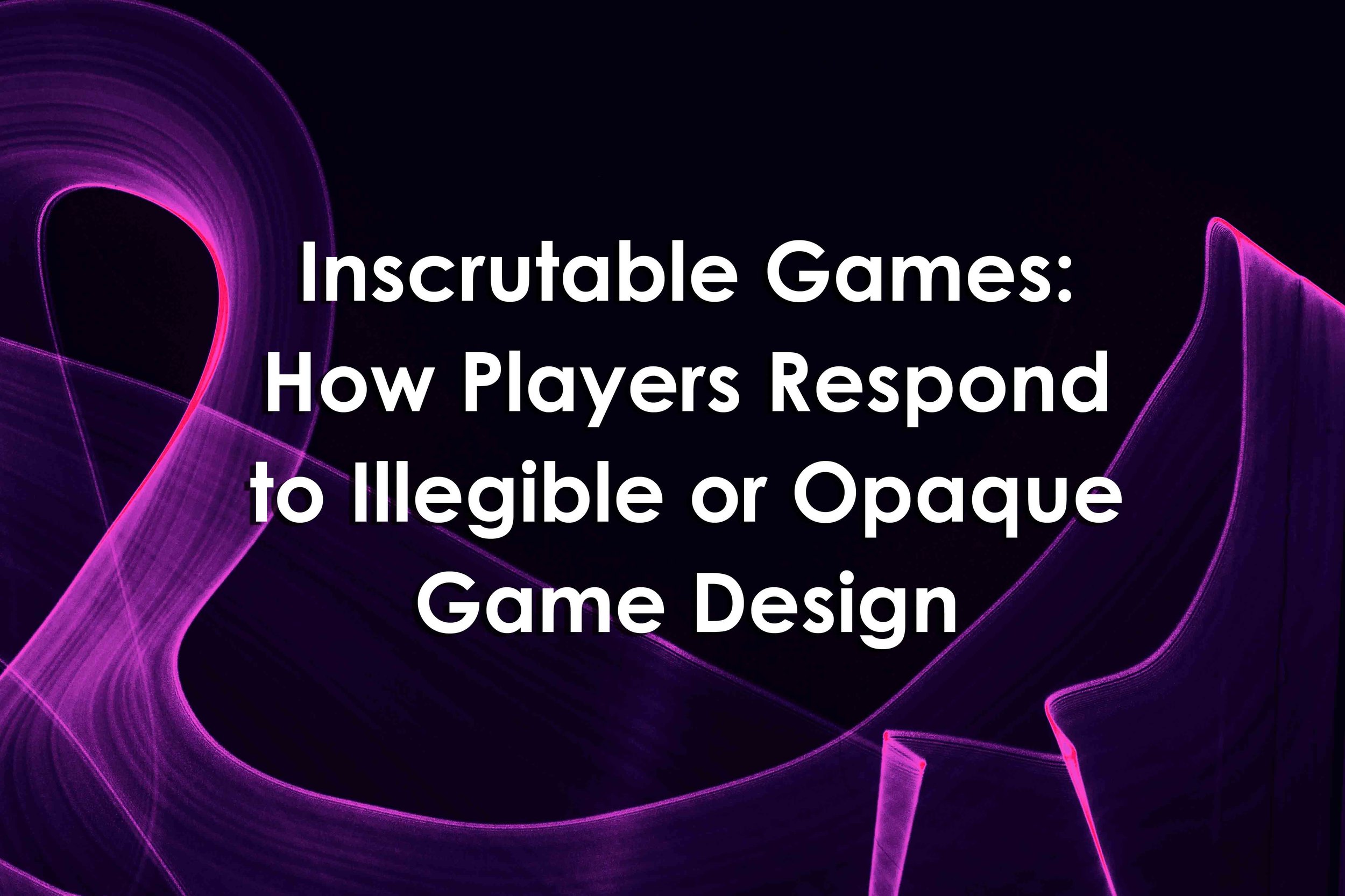Inscrutable Games: How Players Respond to Illegible or Opaque Game Design
Inscrutable Games: How Players Respond to Illegible or Opaque Game Design
Inscrutable Games: How Players Respond to Illegible or Opaque Game Design
Ben Kirman, Conor Linehan, Tom Feltwell
Abstract
“In game design literature, it is generally suggested that players should be provided with useful feedback on their actions, and given a sense of control over their impact on the game. However, some games with complicated and opaque dynamics are still valued by many. These games are "procedurally hostile," as it is difficult to understand the connection between player action and effect on the game state. In this paper, we explore the experience of playing an intentionally inscrutable game, with no winning strategy. Using a mixed methods approach, we find that while players initially follow a logical and systematic approach, there are a range of responses to the players’ failure to understand how their actions affect the game state. Apart from frustration, we find some players embrace the narrative, shifting to enjoying the game as a primarily role-playing experience. This finding is useful to game designers, as it gives insight into the initial response players have to complex game systems and how players make meaning over time.”
Reference
Kirman, B., Linehan, C., & Feltwell, T. (2022, November). Inscrutable Games: How Players Respond to Illegible or Opaque Game Design. In Proceedings of the 25th International Academic Mindtrek Conference (pp. 31-40). https://dl.acm.org/doi/abs/10.1145/3569219.3569392
Keywords
games, players, design

